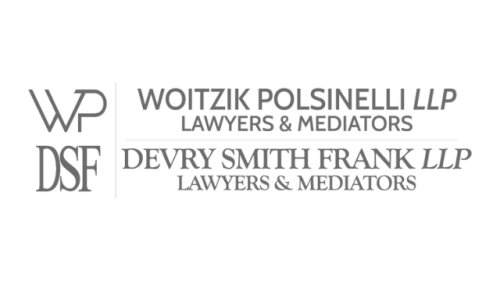Best Licensing Lawyers in Canada
Share your needs with us, get contacted by law firms.
Free. Takes 2 min.
Or refine your search by selecting a city:
List of the best lawyers in Canada
About Licensing Law in Canada
Licensing law in Canada is an integral component of intellectual property rights, business operations, and regulatory compliance. It involves granting permissions to use, create, or sell patents, trademarks, copyrights, and various types of occupational and business licenses. Licensing can also refer to agreements allowing the use of another party's product, technology, or brand. Each province and territory in Canada has its own regulations and authorities managing licenses, whether they are for businesses, intellectual property, or professionals. Understanding licensing law in Canada is critical for businesses looking to operate legally and efficiently within the diverse regulatory landscape of the country.
Why You May Need a Lawyer
There are several situations where legal assistance may be required in the field of licensing:
- Creating or reviewing licensing agreements to ensure compliance and protect interests.
- Navigating the complexities of acquiring business, professional, or operational licenses.
- Handling disputes arising from licensing agreements, such as breaches or infringements.
- Advice on intellectual property licensing, including patents, trademarks, or copyrights.
- Ensuring compliance with local, provincial, and national licensing regulations.
- Guidance on amending or renewing existing licenses.
Local Laws Overview
In Canada, licensing laws are influenced by federal and provincial legislation, meaning businesses and individuals must be aware of regulations at both levels. Key aspects include:
- Intellectual Property Licensing: Governed by federal laws such as the Copyright Act, Patent Act, and Trademark Act, these laws are critical for protecting creators' rights.
- Business Licensing: Varies by province and city; obtaining the correct licenses is crucial for legality and avoiding fines.
- Occupational Licensing: Certain professions, like healthcare and engineering, require specific licenses regulated by provincial bodies.
- Regulatory Compliance: Many industries have specific regulations (e.g., environmental, health and safety) mandating proper licensing.
Frequently Asked Questions
What is a license in legal terms?
A license is a legal agreement granting permission to use, perform, or exploit someone else's property or intellectual property under specific conditions.
Do I need a license to start a small business in Canada?
Yes, most businesses require at least one type of license or permit, which can vary based on the industry and location.
How does a licensing agreement protect my intellectual property?
A licensing agreement specifies terms for use, ensuring your intellectual property is utilized legally and can include provisions for compensation and limitations on use.
Can I operate nationally with a provincial license?
It depends on the industry. Some licenses are provincial-specific, while others, particularly in federal jurisdiction industries, are valid nationwide.
What happens if I operate without the necessary license?
Operating without required licenses can lead to fines, legal action, or business closure. It is crucial to obtain necessary licenses before commencing operations.
How can licensing disputes be resolved?
Disputes can be resolved through negotiation, mediation, arbitration, or litigation, depending on the agreement terms and the parties involved.
What should I include in a licensing agreement?
Key elements include the scope of the license, duration, fees, termination conditions, and intellectual property rights.
Are there different types of licenses for the same business across provinces?
Yes, licensing requirements can vary across provinces, and it's essential to comply with local regulations in each area you operate.
How long does it take to get a license approved?
Approval times vary based on the type and location of the license. It can take from a few days to several months, so it's best to check with the specific licensing authority.
Can licensing laws change, and how can I stay updated?
Yes, licensing laws can change. Staying informed through government publications and consulting with licensing attorneys can help keep you updated.
Additional Resources
For those seeking more information on licensing in Canada, the following resources can be helpful:
- Canadian Intellectual Property Office (CIPO)
- Provincial government websites for business and professional licenses
- Industry associations for specific sectors
- Legal information institutes and law societies in Canada
Next Steps
If you find yourself needing legal assistance in the field of licensing, consider the following steps:
- Identify the type of license relevant to your situation, whether business, occupational, or intellectual property-related.
- Consult with a lawyer specializing in licensing law to discuss your needs and potential issues.
- Gather all necessary documentation and information to facilitate a comprehensive understanding of your situation.
- Stay informed about any changes to licensing laws that may impact your business or profession.
Lawzana helps you find the best lawyers and law firms in Canada through a curated and pre-screened list of qualified legal professionals. Our platform offers rankings and detailed profiles of attorneys and law firms, allowing you to compare based on practice areas, including Licensing, experience, and client feedback.
Each profile includes a description of the firm's areas of practice, client reviews, team members and partners, year of establishment, spoken languages, office locations, contact information, social media presence, and any published articles or resources. Most firms on our platform speak English and are experienced in both local and international legal matters.
Get a quote from top-rated law firms in Canada — quickly, securely, and without unnecessary hassle.
Disclaimer:
The information provided on this page is for general informational purposes only and does not constitute legal advice. While we strive to ensure the accuracy and relevance of the content, legal information may change over time, and interpretations of the law can vary. You should always consult with a qualified legal professional for advice specific to your situation.
We disclaim all liability for actions taken or not taken based on the content of this page. If you believe any information is incorrect or outdated, please contact us, and we will review and update it where appropriate.
Browse licensing law firms by city in Canada
Refine your search by selecting a city.













